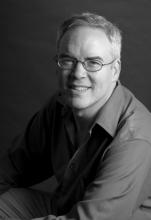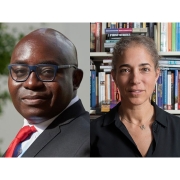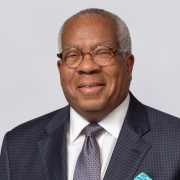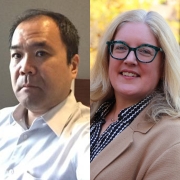Nobel Prize in Chemistry Awarded to Ei-ichi Negishi, Gr'63

Ei-ichi Negishi, the Herbert C. Brown Distinguished Professor of Chemistry at Purdue University and a Penn Chemistry Ph.D., has won the 2010 Nobel Prize in Chemistry, along with Richard Heck (University of Delaware) and Akira Suzuki (Hokkaido University, Sapporo, Japan). The three scientists were recognized by the Royal Swedish Academy of Sciences in Stockholm for having independently made advances in using the palladium complexes as catalysts to link together carbon molecules into larger, more complicated structures. As noted by the Nobel Prize committee, "Palladium-catalyzed cross coupling is used in research worldwide, as well as in the commercial production of ... pharmaceuticals and molecules used in the electronics industry."
Negishi did his dissertation work under Professor of Chemistry Allan Day while at Penn. He is now the seventh Nobel laureate to be associated with the Penn Chemistry Department. The previous laureates include the following:
Christian B. Anfinsen, who received an M.S. in Chemistry at Penn in 1939. Anfinsen was the recipient of the 1972 Nobel Prize in Chemistry for his work in establishing the connection between chemical structure and catalytic activity of the active center of ribonuclease.
Michael S. Brown, C'62, M'66. Brown was the winner of the 1985 Nobel Prize in Medicine in recognition of discoveries concerning "the regulation of cholesterol metabolism." While an undergraduate, Brown was a Chemistry major and also served as features editor and editor-in-chief of the Daily Pennsylvanian.
Stanley B. Prusiner, C'64, M'68. Prusiner, who was also an undergraduate Chemistry major, won the 1997 Nobel Prize in Medicine for his pioneering discovery of an entirely new class of disease-causing agents called "prions" and the elucidation of the underlying principles of their mode of action.
Ahmed H. Zewail, G'74. Zewail won the 1999 Nobel Prize in Chemistry for the development of ultrafast laser techniques for observing chemical reactions in real time and unraveling the dynamics of fundamental chemical processes. While at Penn, Zewail did his Ph.D. dissertation under Dr. Robin Hochstrasser, Donner Professor of Physical Sciences.
Alan G. MacDiarmid. Professor of Chemistry at Penn from 1955 until his death in 2007, MacDiarmid won the 2000 Nobel Prize in Chemistry in acknowledgment of his pioneering discovery and development of a new form of organic polymer that conducts electricity.
Hideki Shirakawa. A Penn Chemistry postdoctoral research associate from 1976 to 1977, Shirakawa was a co-winner of the 2000 Nobel Prize in Chemistry. Shirakawa was a collaborator of Dr. MacDiarmid's and was recognized for his role in the discovery and development of conductive polymers.





